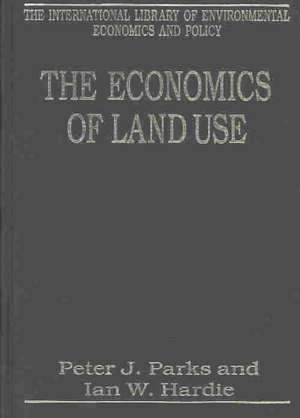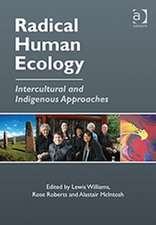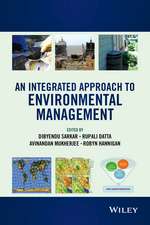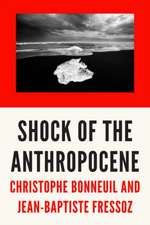The Economics of Land Use: The International Library of Environmental Economics and Policy
Autor Ian W. Hardie Editat de Peter J. Parksen Limba Engleză Hardback – 8 iul 2003
Preț: 1112.82 lei
Preț vechi: 1563.54 lei
-29% Nou
Puncte Express: 1669
Preț estimativ în valută:
212.95€ • 223.92$ • 175.95£
212.95€ • 223.92$ • 175.95£
Carte tipărită la comandă
Livrare economică 17 aprilie-01 mai
Preluare comenzi: 021 569.72.76
Specificații
ISBN-13: 9780754622222
ISBN-10: 0754622223
Pagini: 624
Ilustrații: Illustrations
Dimensiuni: 174 x 246 x 53 mm
Greutate: 1.27 kg
Ediția:1
Editura: Taylor & Francis
Colecția Routledge
Seria The International Library of Environmental Economics and Policy
Locul publicării:Oxford, United Kingdom
ISBN-10: 0754622223
Pagini: 624
Ilustrații: Illustrations
Dimensiuni: 174 x 246 x 53 mm
Greutate: 1.27 kg
Ediția:1
Editura: Taylor & Francis
Colecția Routledge
Seria The International Library of Environmental Economics and Policy
Locul publicării:Oxford, United Kingdom
Cuprins
Contents: Part I: Studies Based on Given Political-Government Institutions and Full Private or Public Ownership: Ricardian Rent: Theory: Interactions between agricultural and environmental policies: a conceptual framework, Richard E. Just and John M. Antle; The Ricardian rent and the allocation of land under uncertainty, Jean-Paul Chavas; Land quality, irrigation development, and cropping patterns in the Northern High Plains, Erik Lichtenberg. Applications: Representative Owner Applications: A dynamic model of acreage allocation with general and crop-specific soil capital, Peter F. Orazem and John A. Miranowski; Mining the soil: agricultural production system on peatland, Renan U. Goetz and David Zilberman. Grouped Land Use and Aggregated Data: The impact of policies and land characteristics on potential groundwater pollution in Wisconsin, JunJie Wu and Kathleen Segerson; Responsiveness of rural and urban land uses to land rent determinants in the U.S. South, Ian Hardie, Peter Parks, Peter Gottlieb and David Wear. Explicit Aggregation Methods: Unintended impacts of public investments on private decisions: the depletion of forested wetlands, Robert N. Stavins and Adam B. Jaffe; Econometric-process models for integrated assessment of agricultural production systems, John M. Antle and Susan M. Capalbo. Policy Maker Decision Models: Minimum cost strategies for sequestering carbon in forests, Darius M. Adams, Ralph J. Alig, Bruce A. McCarl, John M. Callaway and Steven M. Winnett; The economics of a public fund for environmental amenities: a study of CRP contracts, Bruce A. Babcock, P.G. Lakshminarayan, JunJie Wu and David Zilberman. Space - Von Thünen Rent: Theory: The pattern and timing of land development in a long run equilibrium urban land use model, Alex Anas; The fundamentals of land prices and urban growth, Dennis R. Capozza and Robert W. Helsley; The stochastic city, Dennis R. Capozza and Robert W. Helsley. Applications: Urban Growth Model: Growth controls and land values in an open city, Jan K. Brueckner; Urban spatial structure with open space, C.H. Yang and M. Fujita; Agricultural land values and the value of rights to future land development, Andrew J. Plantinga and Douglas J. Miller. Site Price Models: Woodland deforestation by charcoal supply to Dar es Salaam, Ole Hofstad; Human-environmental influences and interactions in shifting agriculture when farmers form expectations rationally, D.W. Jones and R.V. O'Neill. Landscape-Location Studies of Land Use: Roads, land use, and deforestation: a spatial model applied to Belize, Kenneth M. Chomitz and David A. Gray; On the price of land and the value of amenities, Paul Cheshire and Stephen Sheppard; Modeling ecological constraints on tropical forest management: spatial interdependence, irreversibility, and uncertainty, Heidi J. Albers; Interacting agents, spatial externalities and the evolution of residential land use patterns, Elena G. Irwin and Nancy E. Bockstael. Part II: Studies with Given Political - Government Institutions That Do Not Have Complete Property Rights: Open Access Public Property: Nepali fuelwood production and consumption: regional and household distinctions, substitution and successful intervention, Gregory S. Amacher, William F. Hyde and Keshav R. Kanel; Tropical deforestation, tenure insecurity, and unsustainability, Edward B. Barbier and Joanne C. Burgess; Indigenous land rights in Sub-Saharan Africa: appropriation, security, and investment demand, Espen Sjaastad and Daniel W. Bromley. Commons: Environmental externalities in traditional agriculture and the impact of trade liberalization: the case of Ghana, Ramón López; Land allocation under dual individual-collective use in Mexico, Nancy McCarthy, Alain de Janvry and Elisabeth Sadoulet. Takings: The economic consequences of regulatory taking risk on land value and development activity, Timothy J. Riddiough. Part III: Studies With Mutable Government Institutions-Political Economy of Land Use: Assessing the relationship between government policy and deforestation, Robert T. Deacon; Agricultural land relations in the developing world, Hans P. Binswanger, Klaus Deininger and Gershon Feder; A study in resistance to institutional change: the lost game of Latin American land reform, Alain de Janvry and Elisabeth Sadoulet; Takings, compensation, and equal treatment for owners of developed and undeveloped property, Robert Innes; Name index.
Recenzii
'...a comprehensive collection of some of the most profound conceptual and empirical articles on the economics of land. As if this were not good enough, the authors help to situate the chapters in the broader context-helping us to see the intellectual origins of each chapter, as well as the implications of each contribution for other aspects of the domain under study. The value added by this approach is enormous-rendering an otherwise excellent undertaking even more compelling'. Professor Daniel W. Bromley, University of Wisconsin-Madison, USA '.....Professors Parks and Hardie have chosen to highlight studies that not only provide a broad perspective and illustrate the best modeling tools available, but, above all, a literature that begins to plot a course for future innovation in thinking about how society can better implement land-use planning to achieve its various objectives.' Professor G. Cornelis van Kooten, University of Victoria, Canada '...the book is very useful for environmental and agricultural economists, although there are also some essays that could be of some interest for urban economists and for people interested in land use, e.g. urban and regional planners.' International Journal of Environment and Pollution
Descriere
The Economics of Land Use brings together the most significant journal essays in key areas of contemporary agricultural, food and resource economics and land use policy. The editors provide a state-of-the-art overview of the topic and access to the economic literature that has shaped contemporary perspectives on land use analysis and policy.














